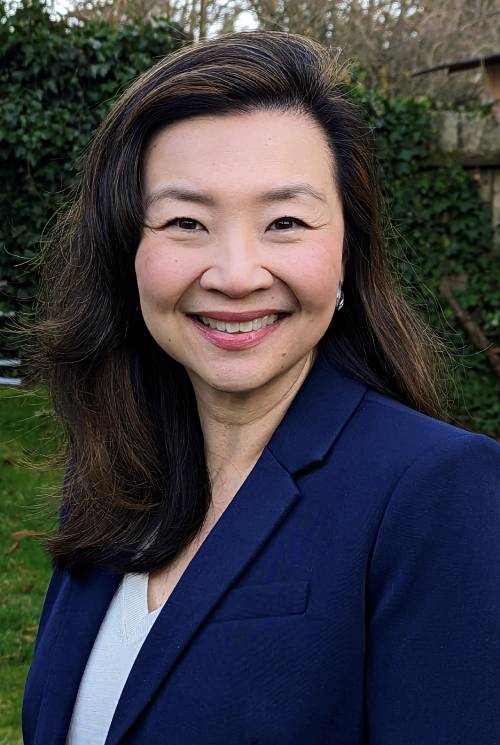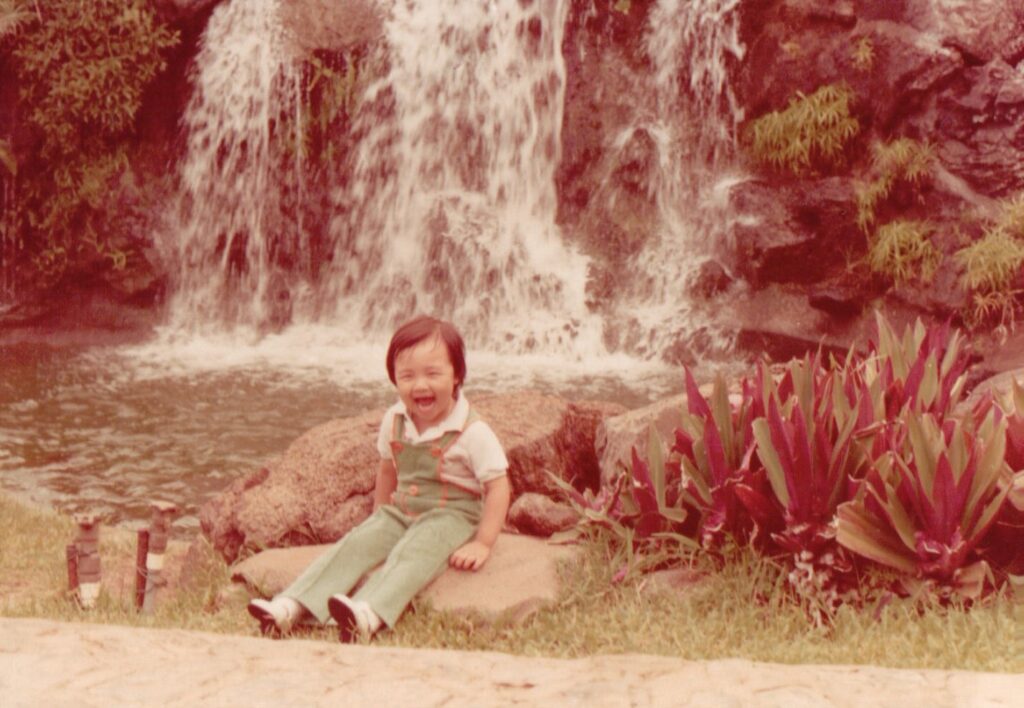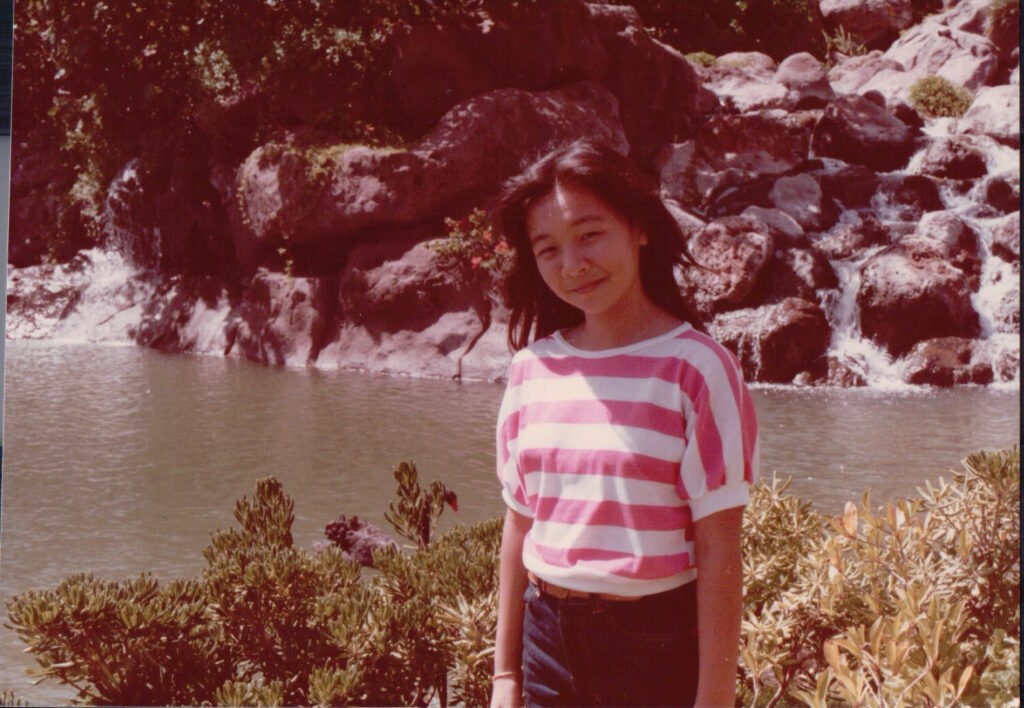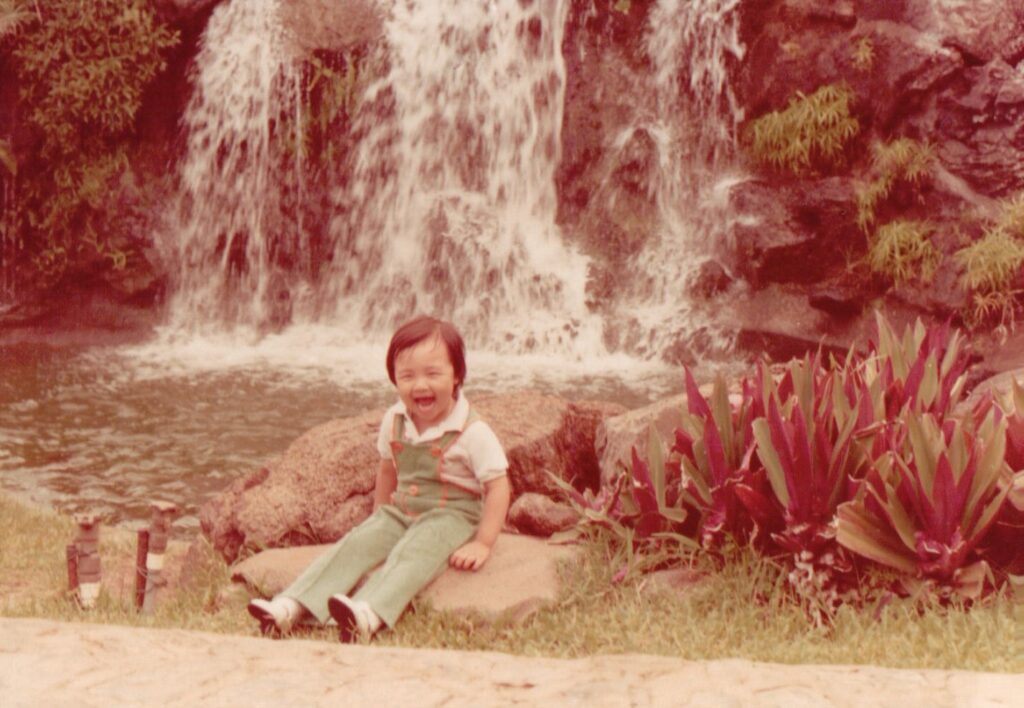In honor of APIDA Heritage Month, we interviewed our own Peggy Chin Evans, Vice President of Community Health Center Performance – and member of our APIDA Employee Resource Group – to learn more about her upbringing, career path and what this month means to her.
Describe the path that led you to your current position.
I started my post-academic career in government and then in health care as a data analyst/statistician. In those early days, I’d volunteer for work that wasn’t part of my expertise but that I found interesting and where there was an organizational gap in knowledge. That’s how I ended up being the go-to subject matter expert on registries and using health IT for population health purposes, which then grew into a career focused on health care transformation. While not a linear path, my career trajectory has always been guided by a personal north star of helping people and leaving this world a better place.

Describe any experiences with intersectionality, allyship and your identity as an APIDA woman in health care.
After immigrating from Hong Kong, I grew up in Hawaii, where there was a large Asian population. For the most part, I was in a bubble about race for the first part of my life because, in many ways, I didn’t feel like a member of the racial minority. It wasn’t until I moved to the Midwest for school that for the first time, I really thought about what it means to be APIDA and started to struggle with my racial identity. I had difficulty with what I perceived to be differential treatment in various settings, to the extent that I probably assigned too much value to my race and gender in many situations. During this transition and adaptation to a vastly new cultural experience, I had to learn how to find my voice as a member of the BIPOC community and seek out people I could talk to. It was at this time that I reached out to other APIDA individuals about their perspectives. Some of these folks were also struggling to define their place in the world, and others seemed to have it figured out. Having friends in both camps helped me forge an identity where I could be comfortable in my own skin over time.

Even though I was getting more comfortable with my APIDA-ness, as I started my career in health care, I saw few people who looked like me who were leading health care organizations. I had successfully made the transition from academia to becoming a health data analyst, but outside of what I was doing at that immediate point in time, I had no vision of what my future career could hold. One day, I went to a local health IT forum, where the speaker was a CIO for a large health care delivery system in Washington State. And she was Chinese! Not only was she Chinese, but she was an immigrant – and she had an interesting, windy path to get to her role. Seeing this CIO speak was a game-changer for me. For the first time, I saw the possibilities of becoming a health care leader in an administrative or technological capacity. I am here to tell you that representation matters – and that seeing other people who look like you doing amazing things has the extraordinary effect of making you think that you can do amazing things, too.
I wasn’t brave enough to reach out to this CIO when I saw her speak 20 years ago because I didn’t want to bother her (exhibiting, perhaps, a strange self-effacing trait that afflicts some of us). I followed her rising career from afar and never forgot her impact on me. Cosmic forces brought us back together when I found myself on the same conference panel with this role model recently. It was so wonderful to meet her and tell her how much she had influenced me even though we had never formally met up to that point. My role model was warm and welcoming, and I don’t know why I waited 20 years to say hello to her.
My advice to APIDA professionals pursuing a career in health care is to reach out and talk to people. Don’t be silly like me and be too afraid to talk to the people you find compelling – especially since many people who have reached more senior levels of their career want to help others who are starting out. And if you are blessed enough to have achieved the upper echelons of leadership, if someone reaches out to you for a conversation or assistance, take the time to meet them and help them on their way.
From your vantage point, how does Aledade’s mission and your work specifically contribute to health care for the APIDA community?
I am so pleased and proud to be the first Vice President of Community Health Center (CHC) Performance for Aledade. I loved my time leading CHCs in the greater Seattle area and supporting CHCs’ mission of providing access and high quality of care for people regardless of whether they can pay for it. Most CHCs provide care to people who are vulnerable, belong to marginalized groups and experience a number of social determinants of health, including many individuals from APIDA communities. From my perspective, CHCs embody the call for social justice and health equity by providing culturally and linguistically appropriate care so that health care can be inclusive. No one is left out. It’s not easy work as patients have complex needs, but CHCs and all staff that work for CHCs are fighting the good fight. Aledade – with its strong mission-orientation to do what is right for patients, practices, and society – has given me the opportunity to not only work for one CHC, but to work across nearly 200 CHCs across the nation to amplify impact. I believe that Aledade shares my values of leaving this world a better place, and I am grateful for the opportunity to work with so many diverse CHCs in this capacity.
What does APIDA Heritage Month mean to you?
To me, APIDA Heritage Month means stopping for a moment to honor and recognize the experiences and stories of the many people who identify with the vast APIDA diaspora. This is a time of celebration of how far we’ve come, a recognition of how far we have to go and an opportunity to raise the voices of the APIDA community. I’ll admit that I was hesitant when first approached about writing this blog. As a self-proclaimed introvert, having my thoughts about my APIDA-ness broadcast to many was not something I immediately warmed up to (see story above about taking 20 years to talk to my role model). But a few caring and gentle colleagues made me realize that this is exactly what APIDA Heritage month is designed to do – to take stock of who we are and be bold about telling our stories.



